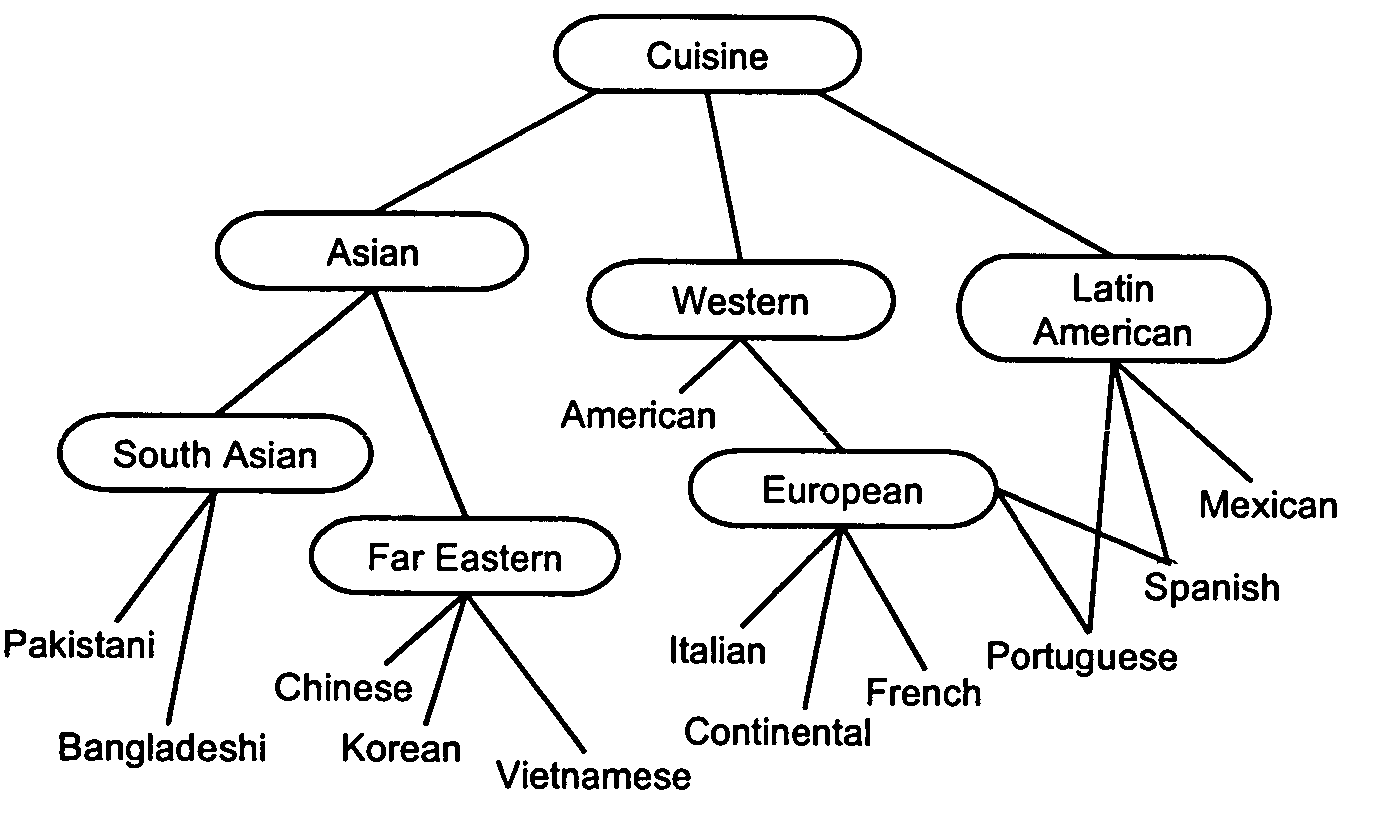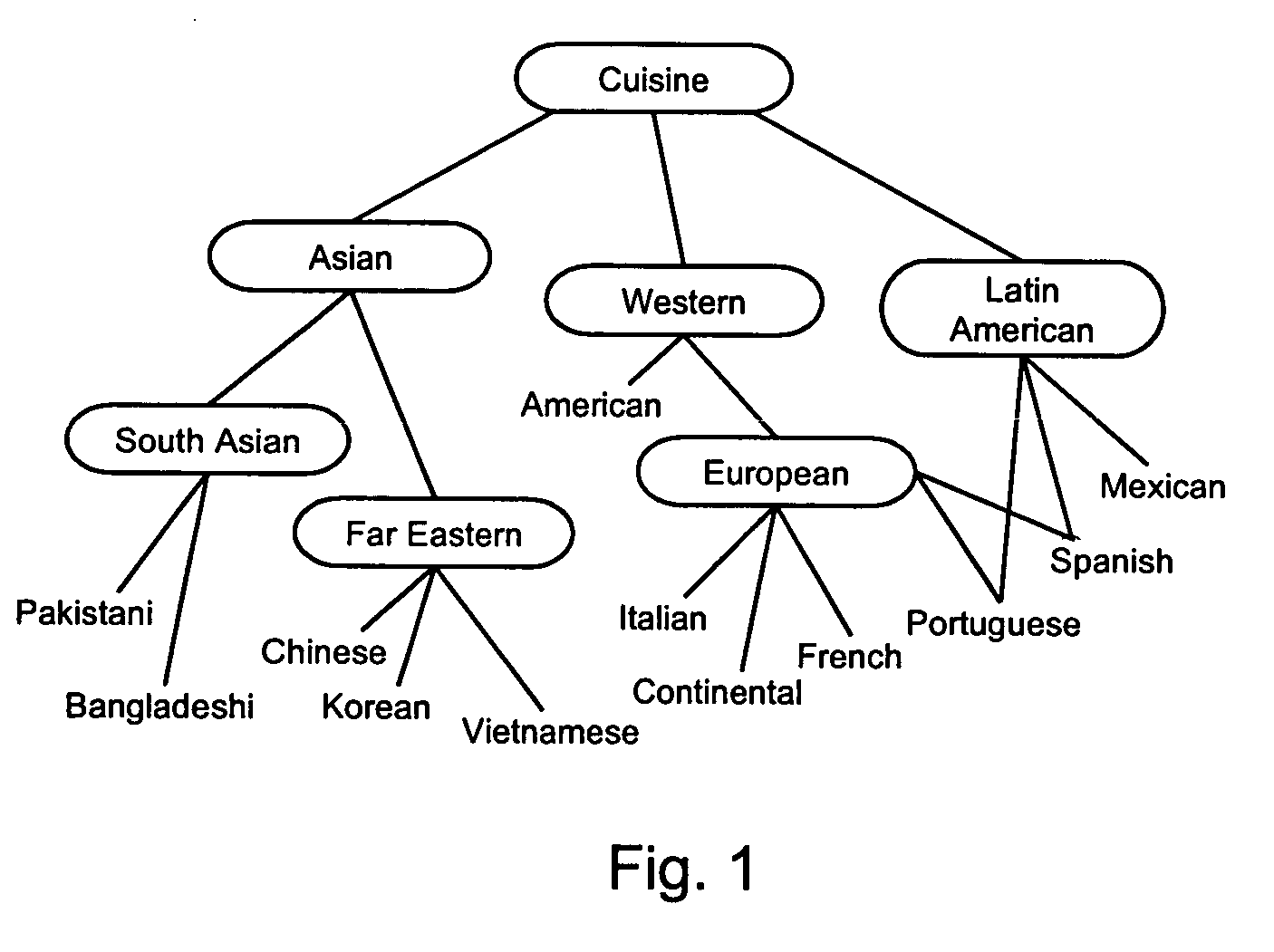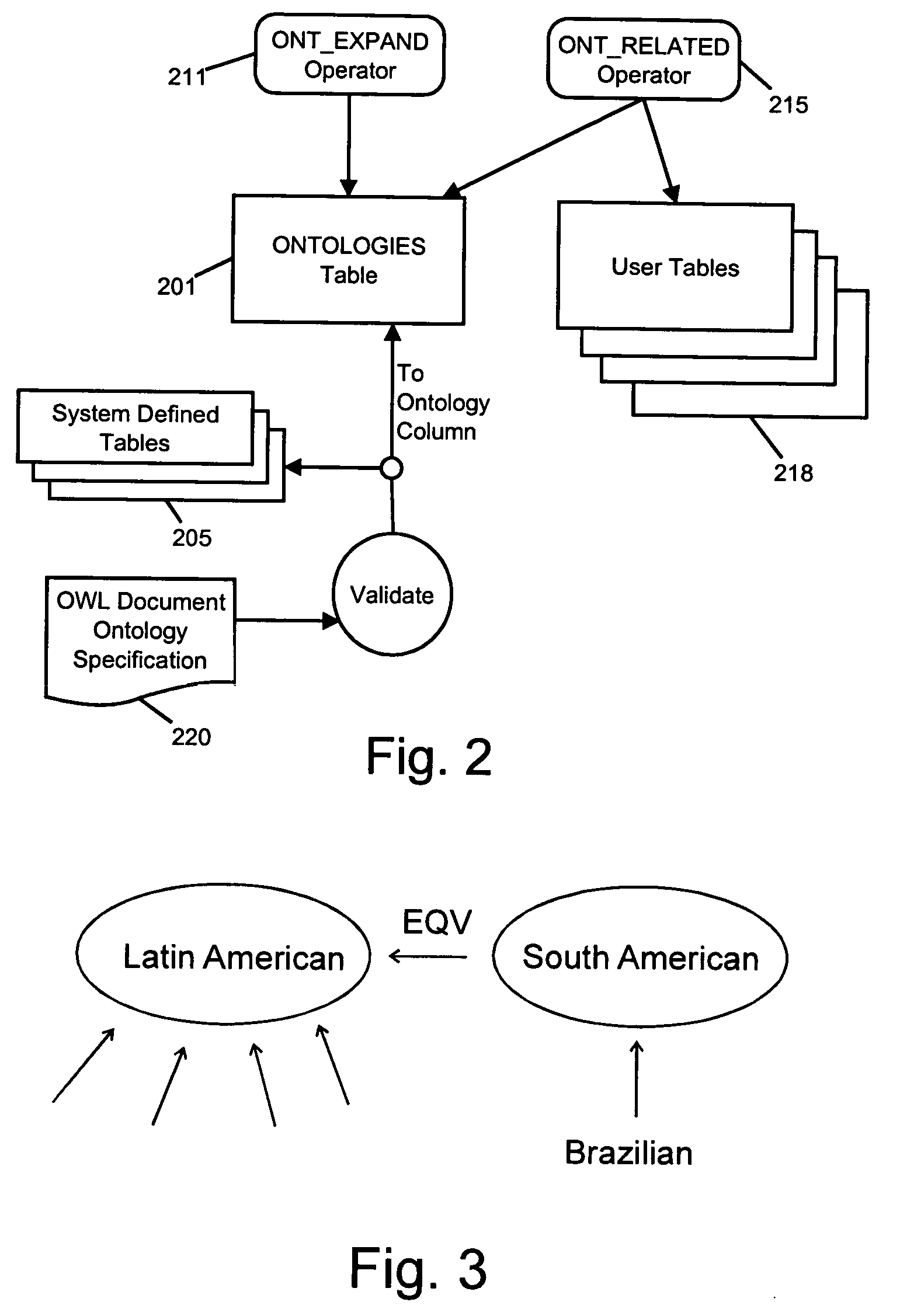System for ontology-based semantic matching in a relational database system
- Summary
- Abstract
- Description
- Claims
- Application Information
AI Technical Summary
Benefits of technology
Problems solved by technology
Method used
Image
Examples
Embodiment Construction
[0023] 1. Introduction
[0024] The present invention employs a set of SQL (Structured Query Language) operators to perform ontology-based semantic matching on data stored in a relational database management system (RDBMS). These SQL operators preferably take the form of extensions to the pre-existing SQL syntax employed by the database and may be implemented with the database extensibility capabilities (namely, the ability to define user-defined operators, user-defined indexing schemes, and table functions) typically available in a robust database system.
[0025] The specific embodiment of the invention described below has been implemented on top of the existing SQL syntax used in the Oracle family of databases. Detailed information on the Oracle SQL language and its syntax can be found in the Oracle 8i SQL Reference available from Oracle Corporation. This reference contains a complete description of the Structured Query Language (SQL) used to manage information in an Oracle database....
PUM
 Login to View More
Login to View More Abstract
Description
Claims
Application Information
 Login to View More
Login to View More - R&D
- Intellectual Property
- Life Sciences
- Materials
- Tech Scout
- Unparalleled Data Quality
- Higher Quality Content
- 60% Fewer Hallucinations
Browse by: Latest US Patents, China's latest patents, Technical Efficacy Thesaurus, Application Domain, Technology Topic, Popular Technical Reports.
© 2025 PatSnap. All rights reserved.Legal|Privacy policy|Modern Slavery Act Transparency Statement|Sitemap|About US| Contact US: help@patsnap.com



